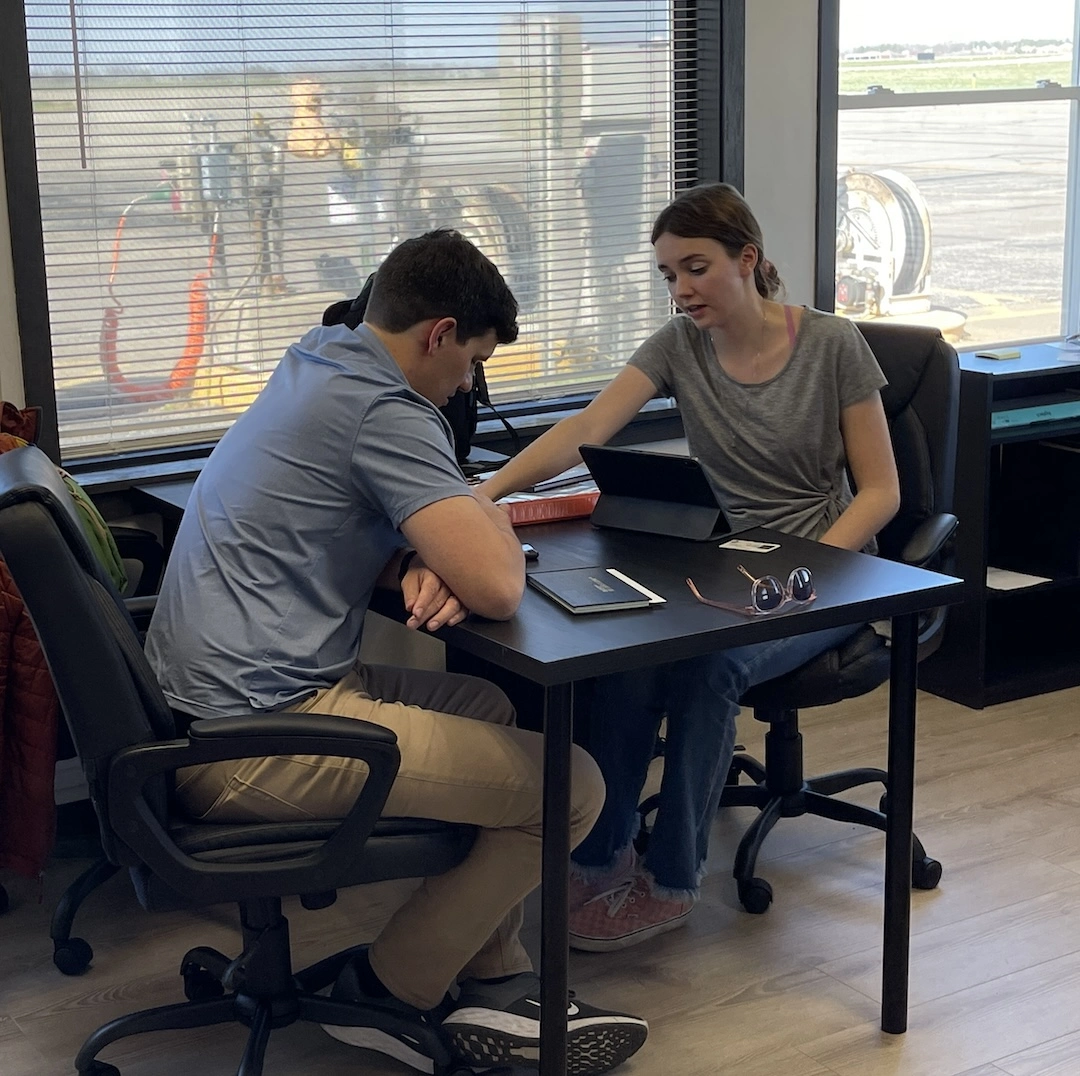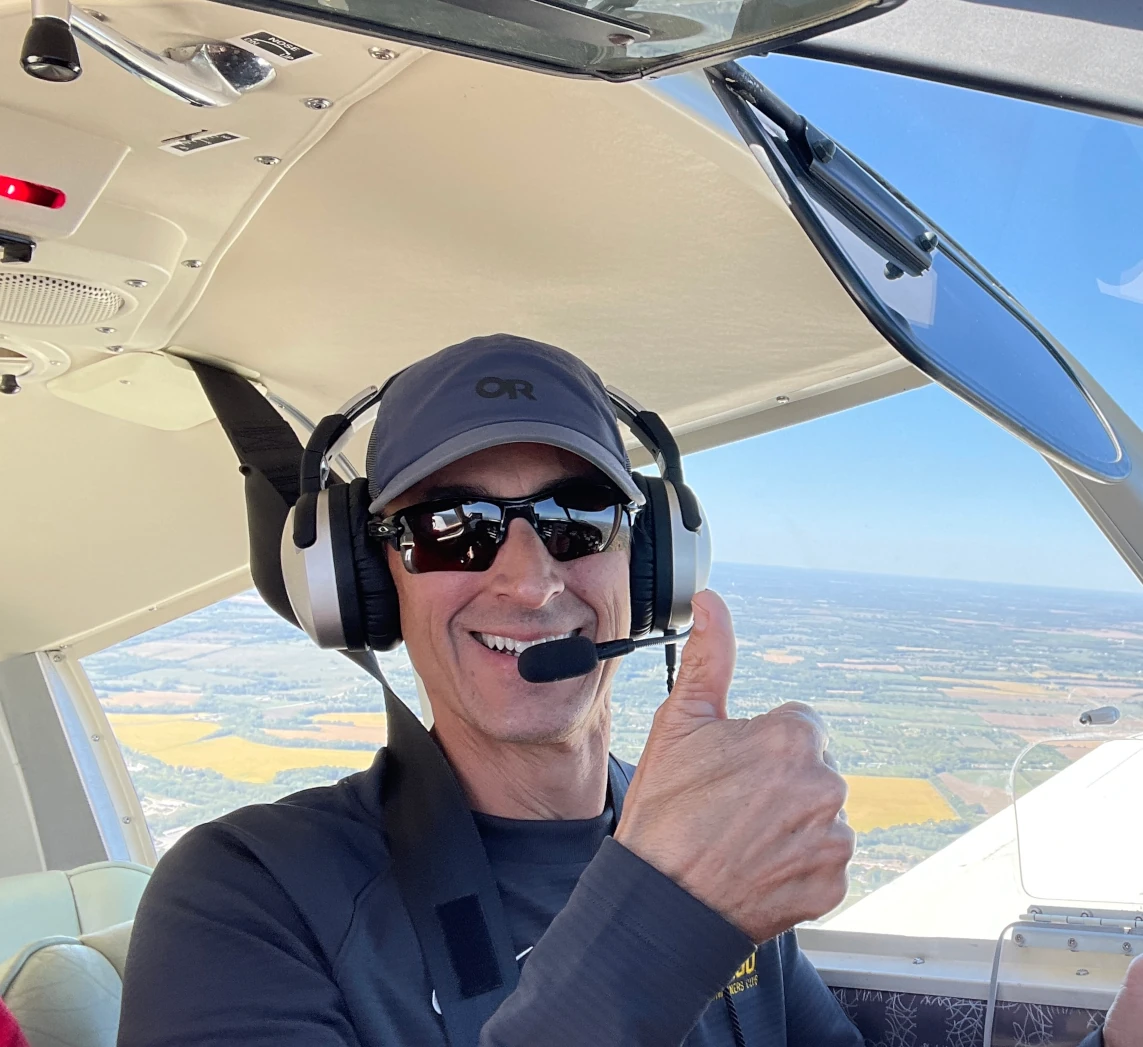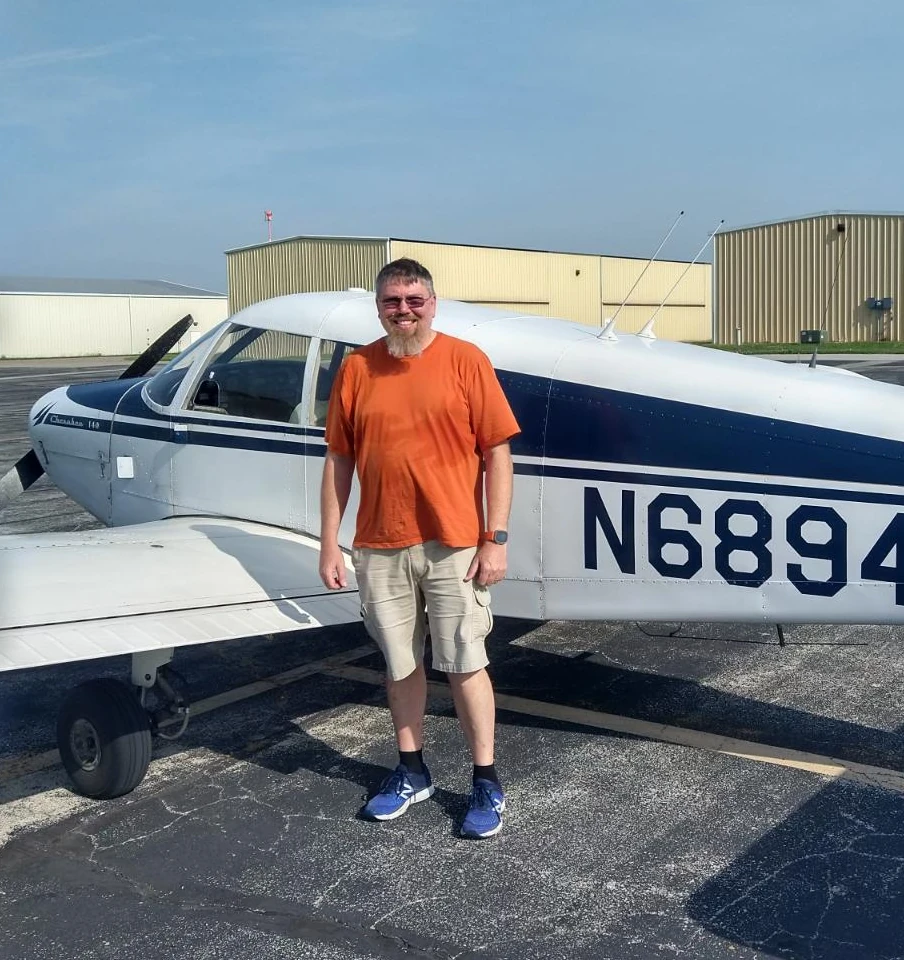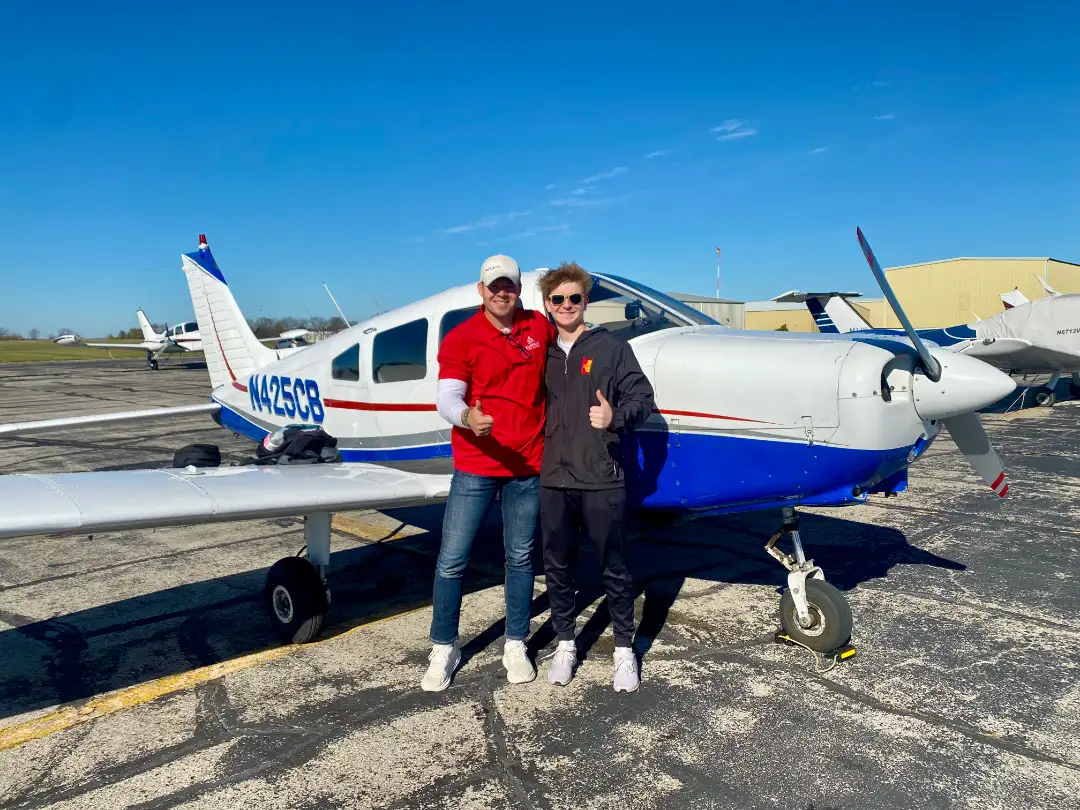How to Get an Instrument Rating
Navigate instrument conditions and expand your range
What is an Instrument Rating?
Obtaining an Instrument Rating is a significant milestone in a pilot's journey and allows for more complex flying. At Summit Flight Academy, we understand the importance of this rating and are dedicated to providing comprehensive training and support to help aspiring pilots achieve this goal. With an Instrument Rating, pilots gain the ability to navigate and operate aircraft safely under conditions of reduced visibility and adverse weather, expanding their capabilities and opening up new opportunities in the aviation industry.
Obtaining an Instrument Rating
How to start training with Summit Flight Academy
01
Beginning Training
The journey towards an Instrument Rating begins with intensive flight training at Summit Flight Academy. Our experienced Certified Flight Instructor Instruments (CFII) will guide you through this phase, ensuring you accumulate the required 50 hours of cross-country flight time as the pilot in command (PIC), including 40 hours of dedicated instrument training. Throughout this process, you'll focus on developing the crucial skill of flying solely by reference to instruments, mastering the art of navigating various instrument approaches and holding patterns.
Our state-of-the-art training facilities and well-maintained fleet of aircraft provide the ideal environment for you to build confidence and hone your skills. With the personalized attention of our CFII instructors, you'll be well-prepared to excel in your instrument rating exams and become a proficient instrument-rated pilot.

02
Pass the Written Exam
At Summit Flight Academy, we understand the importance of a solid theoretical foundation for safe and knowledgeable instrument flying. Our comprehensive ground instruction will cover a wide range of topics, including aviation regulations, flight procedures, meteorology, aircraft systems, navigation, and weather interpretation. Our experienced instructors will guide you through these subjects, ensuring you grasp each concept thoroughly and are equipped with the knowledge needed to fly confidently and safely under Instrument Flight Rules (IFR) conditions.
The written exam will test your understanding of aircraft performance, aerodynamics, and airspace, among other crucial topics. Our dedicated instructors will provide personalized support and resources to help you excel in this exam, laying the groundwork for your success as a skilled and responsible instrument-rated pilot.

03
Complete a Cross Country
A significant milestone in your Instrument Rating journey is the long instrument cross-country flight, which requires you to complete a minimum of 250 nautical miles along airways or ATC-directed routes. At Summit Flight Academy, we ensure you are well-prepared for this challenging task by providing ample practical training and experience.
During this flight, you'll apply your instrument training in a dynamic and ever-changing environment, navigating through complex airspace, briefing approach charts and procedures, and demonstrating your ability to make sound decisions and adapt to various in-flight scenarios. Successful completion of this cross-country flight will solidify your proficiency in real-world instrument navigation and underscore your readiness to become a skilled and competent instrument-rated pilot.

04
Pass the Checkride
The culmination of your Instrument Rating training at Summit Flight Academy is the checkride, a comprehensive evaluation of your theoretical knowledge and practical instrument flying skills. This rigorous examination consists of two components: the oral portion and the flight test.
During the oral exam, you'll demonstrate your understanding of aviation regulations, procedures, and decision-making processes, showcasing your ability to apply this knowledge in real-world scenarios. The flight portion will require you to conduct instrument maneuvers, complete various types of instrument approaches, and communicate effectively throughout the evaluation.
Our instructors' dedication and personalized attention will ensure you are fully prepared for this final challenge. Once you successfully pass the checkride, you'll emerge as a highly capable and confident instrument-rated pilot, ready to navigate the skies with proficiency and confidence, even in instrument conditions.

Summit Flight Academy Pricing
Our Instrument Rating Packages
We pride ourselves on transparency when it comes to pilot training. While other flight schools may hide their pricing, we feel that our future students should have an idea of what they’re paying when engaging in flight lessons with us.
Which package is right for you?
Our Instrument Rating training packages are adapted to our students based on their availability during the week for flight training and how they prefer to schedule their payments. Please answer the questions below to discover which package we recommend for your schedule and payment preferences.
Based on how often you can fly per week, how quickly do you want to earn your Instrument Rating?
How would you prefer to pay for your package?
All packages will include:
- Instructor Services, including Checkride Prep
- ForeFlight Electronic Chart Subscription
- Non-owned Insurance
Efficient Package
$ 3,200/month
for four months
- Training Duration: 4 months
- Training Frequency: Fly 2-3 days/week
- Up to 45 hours of aircraft flight time
- Up to 10 hours of simulator time
- Online Sporty's ground school course
Our four month* flexible instrument pilot training package is available in two plans with two aircraft choices in one of our instrument equipped Pipers.
*The flex program provides you the flexibility to schedule lessons 2-3 times per week to earn your instrument rating. Scheduled lessons will be a mix of be ground, simulator, and flight lessons.

Let's Get Started?
Submit your enrollment interest today
Instrument Rating
Frequently asked questions
- Be at least 17 years of age (16 years of age to solo an airplane)
- Be able to read, speak, write, and understand the English language
- Hold at least a U.S. private pilot certificate
- Hold at least a third-class medical or meet basic med requirements
- Meet the aeronautical experience requirements
- Pass the FAA knowledge test
- Pass the practical test (aka checkride)
- Seek to hone their skills and tackle the challenge of instrument flight.
- Want the extra training to more safely fly in a variety of conditions.
- Don't want to be left stuck by ceilings lower than personal or regulatory VFR minimums but conditions are such that you would fly into clear, excellent flying weather soon after departure.
- Fly cross country frequently and want to be able to safely navigate routine weather that may prohibit or be unsafe for visual flights.
- Complete ground school (online + instructor): Upon completion you will take a FAA knowledge exam on aviation topics such as advanced weather, instrument flight rules and procedures, instrument navigation systems, etc.
- Simulated and instrument flight training: You'll fly under "the hood" or in actual instrument conditions (Piper aircraft only) with an trained CFI instrument instructor to learn how to scan instruments, fly under IFR conditions, navigate with instruments, and depart and approach airports with instrument techniques.
- Cross country flights: One benefit of an instrument rating is the expanded cross country capabilities and you'll hone your instrument skills on cross country flights.
- Checkride preparation: Once all the FAA requirements are competed, you'll begin to focus on bringing it all together. You'll work with your instructor to prep for the oral portion of your checkride and fly together to ensure all your flight tasks meet the FAA airmen certification standards for private pilots.
- Simulator instruction
- Aircraft flight time
- Instructor Services, including checkride prep
- Online ground school course
- Electronic chart subscription
- Insurance
- Third party fees: Your'll pay directly for your knowledge test ($175), and checkride fee ($850).
- Pilot supplies: Generally few additional supplies are needed for instrument students. Most prefer to have their own view limiting device and a few other supplies that we'll help you address economically.
What are the requirements to become instrument rated?
The FAA has the following requirements to become a instrument rated:
Is an instrument rating right for you?
An instrument rating is ideal for pilots that:
What will I learn or do?
Some of what you'll learn and do:
What's included in our Instrument programs?
Items included:
What's not included in our Instrument programs?
Items not included:
Why packages?
We offer our best pricing with these packages because it allows us to manage our aircraft and instructor workloads more predictably and efficiently. They also offer you the best structure for finishing what you started. Additionally, many financing options require packaging to structure a loan for students needing that option.
How often will I fly with these packages?
Our Accelerated Instrument Program is a full-time effort for two weeks. Our flex program is designed for 2-3 lessons per week over four months.
What happens if I don't use all my flight hours?
This generally does not occur with instrument training. However, in the event it does we will gladly roll those hours into another package or you may use them for rental purposes within 90 days of your checkride.
What happens if I exceed my allocated flight hours?
We really strive for this not to happen by providing average flight hours that are needed for the program length you select. However, in the event this happens we will provide you additional aircraft and/or instructor hour at an agreed upon discounted rate.
What happens if I need to quit or defer my training?
Life happens, we get it. If you need to defer your training you may pause payments and elect a future restart date. If you have paid off your program, but have not completed it, your program remains valid for one year after the initial program end date. Upon restart, you may receive a new instructor and experience the need to fly additional hours to complete your certificate, but we will provide all hours originally paid for by your package. If you need to withdrawal from your program, you will lose access to the preferred package pricing. We will bill you current retail pricing, plus a 5% administrative fee for all instructor services and flight time flown. Insurance, ground school, and Foreflight fees are, unfortunately, non-refundable. Any remaining money on account will be refunded within 7 days of written notice of withdrawal. If your account is in deficit, we will need the balance paid off at time of cancellation.